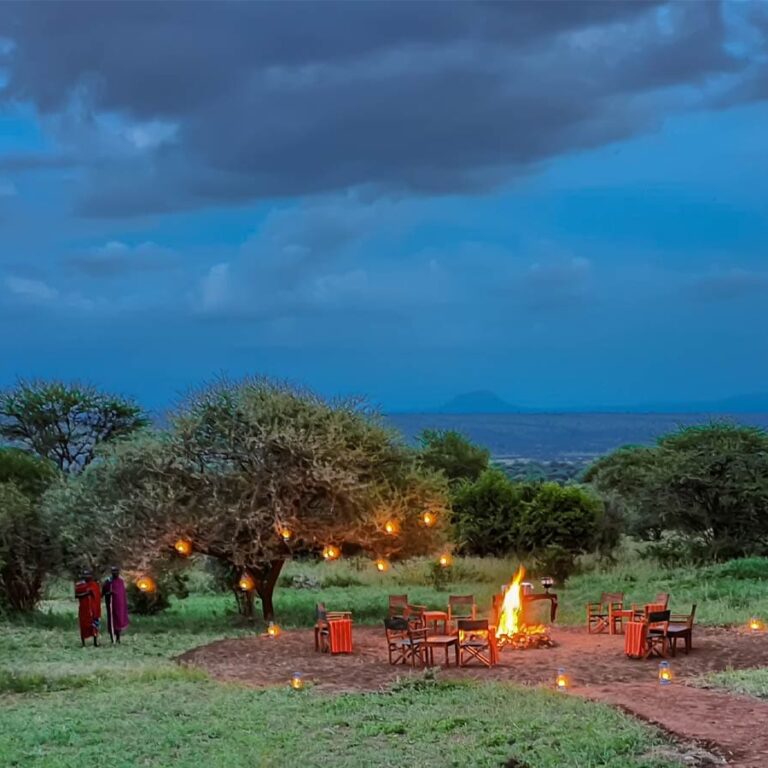The Shadow of the Savannah: Fascinating Facts About the Black-Backed Jackal. In the vast, sun-drenched landscapes of Africa, a creature of cunning and resilience moves with silent purpose: the black-backed jackal (Canis mesomelas). Often seen as the opportunist of the plains, darting through the grass or scavenging at the fringes of a lion’s kill. This striking canid is far more complex and captivating than its reputation might suggest. With its distinctive black “saddle” contrasting against a rusty red-brown coat, the black-backed jackal an icon. Yet often misunderstood, inhabitants of both eastern and southern Africa.
Beyond its opportunistic nature, the black-backed jackal possesses a suite of remarkable adaptations and behaviors that make it one of the most successful and enduring predators in its ecosystem. Let’s delve into some fascinating facts that reveal the true character of this clever and ancient survivor.
1. Black-Backed Jackals Are Highly Vocal
If you’ve ever spent a night in the African bush, you’ve likely heard the eerie, high-pitched wails, yelps, and cackles that echo across the plains. These are often the calls of black-backed jackals. Renowned for being highly vocal creatures. Their extensive repertoire of sounds serves a multitude of purposes, forming a complex communication system vital for their survival.
Their most famous call series of long, mournful wails, often culminating in frantic yelps, which can travel for considerable distances and serve to announce their presence. Locate pack members or deter rivals. They use short, sharp barks as alarm calls, warning others of danger. While whimpers and growls common within social interactions. Signifying submission or aggression. These vocalizations are critical for coordinating hunts, defending territories, maintaining pair bonds, and even alerting larger predators to the presence of prey – a clever strategy to benefit from the aftermath.
2. Black-Backed Jackals Are of Ancient Heritage
The black-backed jackal isn’t just another wild dog; it represents one of the oldest living lineages within the genus Canis. Genetic studies suggest that this species diverged from other canids approximately 2.5 to 3 million years ago. Making it a true living relic of canine evolution. Its long evolutionary history has allowed it to perfect adaptations for survival in diverse African environments. Explaining its widespread distribution and enduring success.
This ancient heritage, reflected in its morphology and behavior, which are distinct from more recently evolved canids like wolves or domestic dogs. Its remarkable longevity as a species underscores its incredible adaptability and effectiveness as a medium-sized predator and scavenger in a highly competitive ecosystem.
3. Like All Jackals, This Species Forms Monogamous, Life-Long Pair Bonds
Despite their solitary appearance when hunting, black-backed jackals are highly social animals that form strong, monogamous, and often life-long pair bonds. A male and female will typically mate for life. Working together as a highly efficient unit for hunting, raising pups, and defending their territory.
This enduring partnership the cornerstone of their social structure. The pair will often hunt cooperatively, with one jackal flushing out prey while the other ambushes it. When pups are born (usually in an underground den). Both parents are heavily involved in their care, bringing food, grooming them, and protecting them from predators. Sometimes, older offspring (non-breeding “helpers”) from previous litters will even stay with the family group for a year or two. Assisting in raising the younger siblings significantly increases the survival rate of the pups.
4. Black-Backed Jackals Are Rabies Vectors
While fascinating, it’s important to acknowledge that black-backed jackals, like many wild canids, can be significant vectors for rabies. Their widespread distribution, adaptable nature, and contact with both domestic animals and other wildlife. Make them a key species in the epidemiology of this fatal viral disease in certain regions of Africa.
This poses a serious challenge for conservation and public health. Efforts to control rabies in areas where jackals are abundant often involve vaccination campaigns for both domestic dogs (to create a buffer zone) and, in some cases, targeted oral rabies vaccination for wild jackal populations. Understanding their role as vectors is crucial for implementing effective disease management strategies.
5. Black-Backed Jackals Are Clever Companions
The black-backed jackal’s reputation for cunning well-earned. They are highly intelligent and opportunistic, capable of complex problem-solving and adaptable hunting strategies. They are often seen trailing larger predators like lions or leopards, patiently waiting for an opportunity to scavenge leftovers – a risky but often rewarding strategy.
Beyond scavenging, they employ clever hunting tactics. A pair might work together to herd small antelopes or birds into an ambush. They’ve also been observed using firelines to flush out prey and even stealing eggs from ground-nesting birds with remarkable stealth. Their intelligence extends to avoiding traps set by humans, quickly learning to circumvent dangers in their environment. This cognitive flexibility allows them to thrive in varied and challenging landscapes.
6. Black-Backed Jackals Are Subject to Intraspecific Competition
Despite their cooperative nature within their family units, black-backed jackals can be highly competitive with other jackals, especially over territory and food resources. This “intraspecific competition” means they vie fiercely with members of their own species for dominance and survival.
Territorial disputes between rival jackal pairs or family groups can be intense, involving aggressive vocalizations, chases, and even physical fights. They mark their territories with urine, feces, and scent glands to deter intruders. Competition particularly pronounced when resources are scarce or during the breeding season. Prime territories offer better hunting grounds and safer den sites for raising pups. This competition drives their dispersal behavior, pushing younger jackals to seek out new territories away from their natal home ranges.
7. Cryptic Coloration
The most distinctive feature of the black-backed jackal is its unique “saddle” marking, a striking strip of black hair running from its shoulders to the base of its bushy tail, edged with silver. This pattern, along with its rusty red-brown body, not just for show; it’s a prime example of cryptic coloration, a form of camouflage.
In the dappled light and shadow of the African bush, particularly during dawn and dusk when they are most active. This distinctive coloring helps them blend seamlessly into the tall grasses, rocky outcrops, and thorny scrub. The broken pattern disrupts their outline. Making them harder for both prey and larger predators to spot. This natural camouflage is a crucial adaptation for a creature that relies on stealth for both hunting and avoiding being hunted.
8. Nocturnal Predators
While they can be active during the day, black-backed jackals, primarily nocturnal predators, especially in areas with human disturbance or high daytime temperatures. Keen senses, particularly their excellent hearing and eyesight in low light, make them formidable hunters after dark. Under the cover of night. They are highly effective at hunting small mammals (like rodents and hares), birds, and reptiles. Nocturnal habits also allow them to scavenge safely at carcasses left by lions, leopards, or hyenas, avoiding direct confrontation with these larger, more dangerous predators. Their activity patterns are flexible. However, and in cooler regions or during specific seasons, they can be seen hunting or foraging during daylight hours.
9. Versatile Diet
The black-backed jackal highly opportunistic and adaptable omnivore, possessing a remarkably versatile diet. This dietary flexibility is a key factor in its widespread success across varied habitats. While often seen scavenging on carrion (a significant part of their diet, especially large animal carcasses), they also highly efficient hunters of small to medium-sized prey. Their menu includes: Mammals. Rodents, hares, young antelope (especially impala, gazelle, springbok), small monkeys. Birds. Ground-nesting birds and their eggs. Reptiles/Amphibians. Lizards, snakes, frogs. Invertebrates. Insects like termites and beetles. Plant Matter. Fruits, berries, grass, seeds (especially during dry seasons when other food sources are scarce).
This ability to exploit a wide range of food sources ensures their survival even when preferred prey is scarce, making them resilient survivors in ever-changing environments.
10. Adaptability to Urban Environments
Remarkably, black-backed jackals exhibit a surprising degree of adaptability to human-modified landscapes, including some semi-urban and agricultural areas. While they primarily inhabit natural wildernesses. Their opportunistic nature has allowed them to exploit resources found near human settlements.
They can be found scavenging on refuse, preying on domestic fowl, or even hunting rodents and other small animals in agricultural fields. This adaptability, however, often brings them into conflict with humans, particularly farmers, due to livestock predation. Despite these challenges, their ability to coexist (even if sometimes controversially). Near human populations highlight their incredible resilience and intelligence as a species. Underscoring their enduring presence in the African landscape.
- 10 Interesting Facts About Leopards
- 8-Day Remarkable Tanzania Safari
- Top 10 Animals to See on an African Safari
- 10 Fascinating Facts About African Big Cats
- What to Pack for a Great Migration Safari








